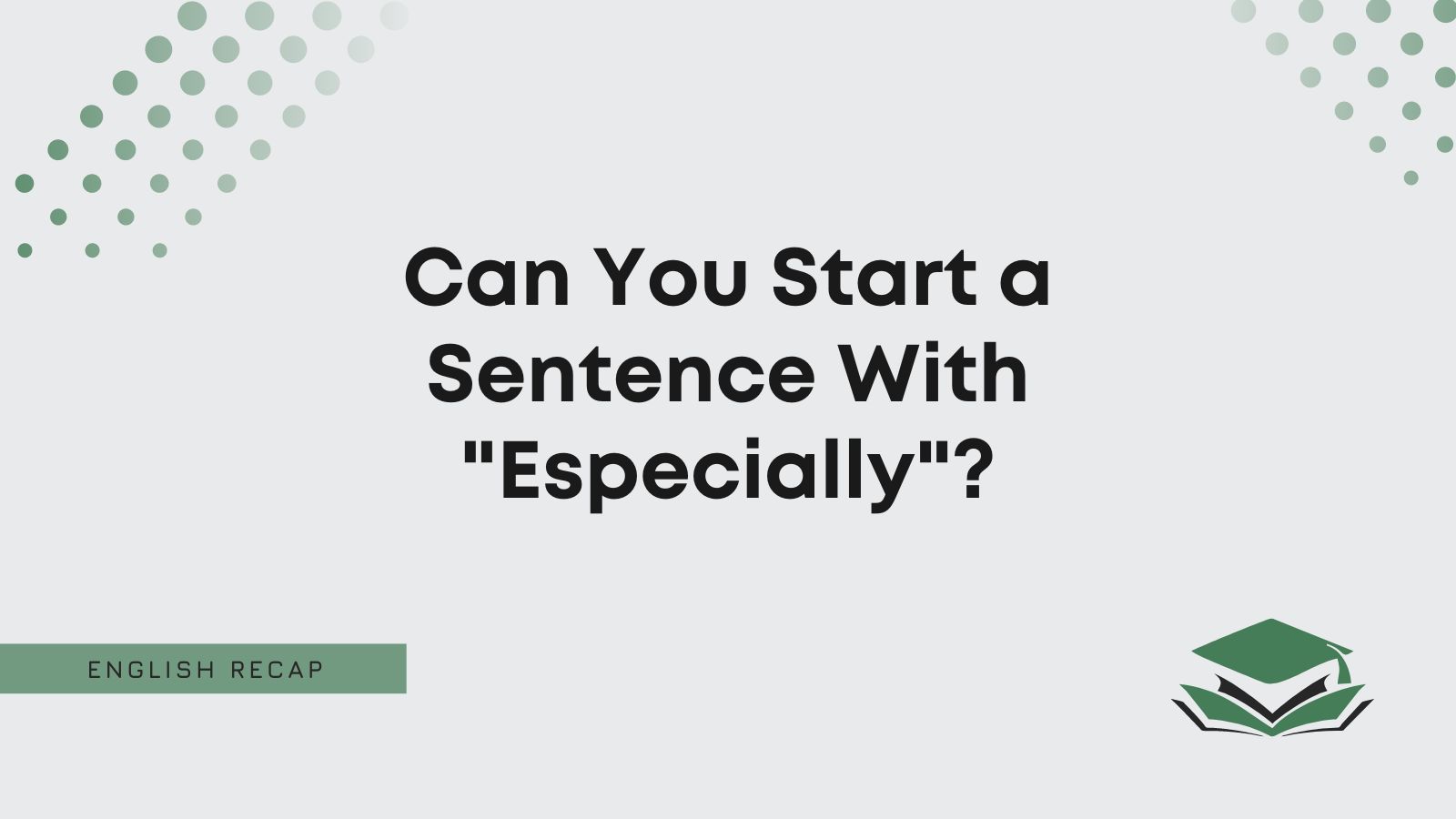You can start a sentence with “especially.” However, in formal writing, it is not common to do so, and you should avoid it in academic writing. In informal English, it is more common to begin a sentence with “especially.” E.g., “Especially because I’m married, I have little free time.”
The meaning of the word “especially” at the start of a sentence relates to how something affected something else. Also, it can provide reason and justification for something.
- Especially during the 1960s, nuclear conflict was a real threat.
- Especially for you, I will come to the party.
If you still have doubts and want to learn more about using “especially” in formal and informal contexts, please keep reading the remainder of the page.
We’ll also show you what to use instead of “especially” in formal writing.
Can You Start a Sentence With “Especially” in Formal Writing?
It is uncommon to use “especially” in formal or academic writing but not necessarily wrong.
Here is an example of how “especially” could appear in formal writing.
- Especially during the period of the Byzantine Empire, whose capital was Constantinople, pottery and art were common.
However, some people regard it as incorrect to start a sentence with “especially” in formal writing. Therefore, you should use a synonym for “especially,” such as:
- Mainly
- Particularly
- Remarkably
- Significantly
Can You Start a Sentence With “Especially” in Informal Writing?
Starting a sentence with “especially” in informal writing is acceptable. It is actually more common to use “especially” informally when beginning a sentence, and many feel it is incorrect to do it in an academic text.
When starting a sentence with “especially,” there will always be a second clause.
Here are some examples of “especially” starting informal sentences:
- Especially since I love you, I am taking you to your favorite restaurant.
- Especially when I am with you, I feel optimistic about the future.

